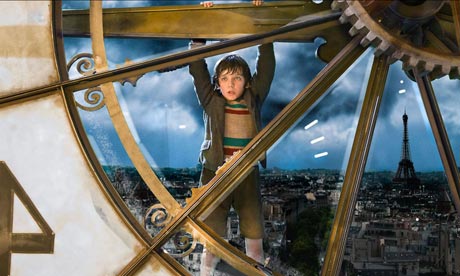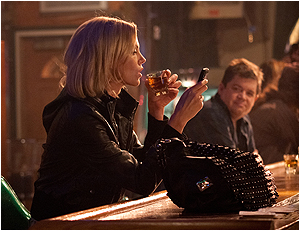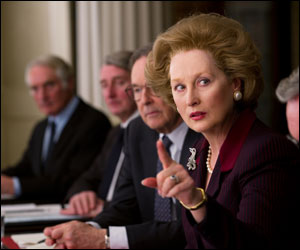
"I would recognise the sound of a movie projector anywhere!" says one of cinema's greatest pioneers, hearing that mechanical, sprockety whirr. It's a climactic moment in Martin Scorsese's new film: a family fantasy adventure in 3D which turns out to be a hi-tech magic lantern presentation on the wonder of early cinema, and its origins in the world of clockwork craftsmanship: toys, games, illusions.
- Hugo
- Production year: 2011
- Countries: France, USA
- Cert (UK): U
- Runtime: 126 mins
- Directors: Martin Scorsese
- Cast: Asa Butterfield, Ben Kingsley, Chloe Grace Moretz, Chloe Moretz, Christopher Lee, Emily Mortimer, Frances de la Tour, Helen McCrory, Jude Law, Ray Winstone, Richard Griffiths, Sacha Baron Cohen, Sir Ben Kingsley
Hugo has more secrets: he is trying to repair and restore a remarkable automaton which had come into the possession of his late father (Jude Law), a kindly watchmaker. But without Hugo quite realising it, this robot hides within its workings the secret of the 20th century's great new art form. Young Hugo is to come into contact with Isabelle (Chloë Moretz) and her formidable old grandpa, who runs a toy stall on the station platform: he is, in fact, M Georges Méliès, the great film-maker and innovator, now fallen on hard times. Ben Kingsley plays Méliès, and gives him the melancholy air of a deposed and exiled king, or at any rate someone who has been marginalised by great historical forces which he himself has brought into being: a little like Robert Donat's William Friese-Greene, the British cinema pioneer, in John Boulting's 1951 film The Magic Box. The illustrated novel The Invention of Hugo Cabret by Brian Selznick, on which this movie is based, was inspired by the nonfiction study Edison's Eve, by British author Gaby Wood, which discussed Méliès's lost collection of automata.
The movie's opening act makes it actually look more like Spielberg than Scorsese, especially in the appearance of the villain, the station inspector, played by Sacha Baron Cohen, as a moustachioed martinet and stickler for station rules who vows to track down that little urchin Hugo. The inspector has, crucially, a sinister distinguishing feature: a metal clasp around his leg where he was injured in the Great War. Homing in on that feature looks like a Spielbergian tic – but then it becomes something else, a poignant mark of vulnerability and humanity, especially as this mechanism becomes positive, associated with the creativity and ingenuity of Hugo's robot and Méliès's secret career.
The quietly spoken, self-possessed old man reveals himself to be a great imaginative artist, and creator of the legendary adventure A Trip to the Moon. He was first a magician, and early adopter of the cinematograph when he saw the Lumière brothers' legendary 50-second film showing the arrival of a train at Ciotat station. (Here, incidentally, the film playfully repeats the apocryphal story of the audience fleeing from the train in panic. Scorsese's use of 3D for this movie is a clue that he is well aware of film historians' consensus that this tale is likely to have grown from the audience gasping and jumping when the Ciotat film was re-shown in the 1930s in stereoscopic 3D.)
It is when Isabelle and Hugo discover that the point of the story is the movies themselves that this film becomes at once so much more, and yet ever so slightly less, than a story about a homeless frightened boy and the mysterious toy robot which is all that he has left of his dad. Discovering and repairing old automata becomes a fable for film restoration and film history (of course, a great passion of Scorsese's), and the tensions between everyone involved are dissolved in universal reverence for this historical rediscovery of Méliès's genius. And of course, no red-blooded cinema lover could fail to sigh happily at these events, but this is in some ways an earnest and temperamentally conservative film, and I sometimes got the strange feeling that it was something that a really nice teacher might show in the runup to the Christmas holidays.
For all that, it's a deeply felt piece of work, something which only Scorsese could have brought to the screen, which finds a key point when Hugo must use a heart-shaped key to operate his automaton. The heart – that mediator between the head and the hands – is an image which points to the movies as a ghost in the machine: the technology, mass-production and grinding commerce which exploded in the 20th century would also facilitate the growth and vitality of the cinema itself.




